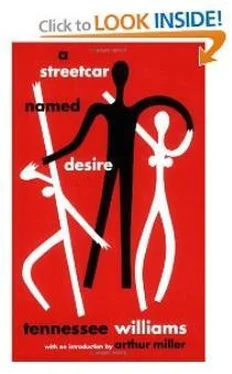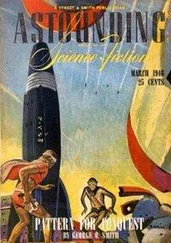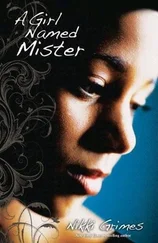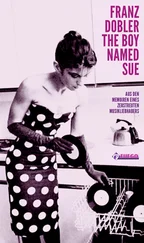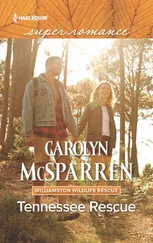It is never altogether too late, unless you embrace the Bitch Goddess, as William James called her, with both arms and find in her smothering caresses exactly what the homesick little boy in you always wanted, absolute protection and utter effortlessness. Security is a kind of death, I think, and it can come to you in a storm of royalty checks beside a kidney-shaped pool in Beverly Hills or anywhere at all that is removed from the conditions that made you an artist, if that's what you are or were or intended to be. Ask anyone who has experienced the kind of success I am talking about--What good is it? Perhaps to get an honest answer you will have to give him a shot of truth-serum but the word he will finally groan is unprintable in genteel publications.
Then what is good? The obsessive interest in human affairs, plus a certain amount of compassion and moral conviction, that first made the experience of living something that must be translated into pigment or music or bodily movement or poetry or prose or anything that's dynamic and expressive--that's what's good for you if you're at all serious in your aims. William Saroyan wrote a great play on this theme, that purity of heart is the one success worth having. "In the time of your life--live!" That time is short and it doesn't return again. It is slipping away while I write this and while you read it, and the monosyllable of the clock is Loss, Loss, Loss, unless you devote your heart to its opposition.
The exterior of a two-story corner building on a street in New Orleans which is named Elysian Fields and runs between the L & N tracks and the river. The section is poor but, unlike corresponding sections in other American cities, it has a raffish charm. The houses are mostly white frame, weathered gray, with rickety outside stairs and galleries and quaintly ornamented gables. This building contains two flats, upstairs and down. Faded white stairs ascend to the entrances of both.
It is first dark of an evening early in May. The sky that shows around the dim white building is a peculiarly tender blue, almost a turquoise, which invests the scene with a kind of lyricism and gracefully attenuates the atmosphere of decay. You can almost feel the warm breath of the brown river beyond the river warehouses with their faint redolences of bananas and coffee. A corresponding air is evoked by the music of Negro entertainers at a barroom around the corner. In this part of New Orleans you are practically always just around the corner, or a few doors down the street, from a tinny piano being played with the infatuated fluency of brown fingers. This "Blue Piano" expresses the spirit of the life which goes on here.
Two women, one white and one colored, are taking the air on the steps of the building. The white woman is Eunice, who occupies the upstairs flat; the colored woman a neighbor, for New Orleans is a cosmopolitan city where there is a relatively warm and easy intermingling of races in the old part of town.
Above the music of the "Blue Piano" the voices of people on the street can be heard overlapping.
[Two men come around the corner, Stanley Kowalski and Mitch. They are about twenty-eight or thirty years old, roughly dressed in blue denim work clothes. Stanley carries his bowling jacket and a red-stained package from a butcher's. They stop at the foot of the steps.]
STANLEY [bellowing]:
Hey, there! Stella, Baby!
[Stella comes out on the first floor landing, a gentle young woman, about twenty-five, and of a background obviously quite different from her husband's.]
STELLA [mildly]:
Don't holler at me like that. Hi, Mitch.
STANLEY:
Catch!
STELLA:
What?
STANLEY:
Meat!
[Be heaves the package at her. She cries out in protest but manages to catch it; then she laughes breathlessly. Her husband and his companion have already started back around the comer.]
STELLA [calling after him]:
Stanley! Where are you going?
STANLEY:
Bowling!
STELLA:
Can I come watch?
STANLEY:
Come on.
[He goes out.]
STELLA:
Be over soon.
[To the white woman]
Hello, Eunice. How are you?
EUNICE:
I'm all right. Tell Steve to get him a poor boy's sandwich 'cause nothing's left here.
[They all laugh; the colored woman does not stop. Stella goes out.]
COLORED WOMAN:
What was that package he th'ew at 'er?
[She rises from steps, laughing louder.]
EUNICE:
You hush, now!
NEGRO WOMAN:
Catch what!
[She continues to laugh. Blanche comes around the corner, currying a valise. She looks at a slip of paper, then at the building, then again at the slip and again at the building. Her expression is one of shocked disbelief. Her appearance is incongruous to this setting. She is daintily dressed in a white suit with a fluffy bodice, necklace and earrings of pearl, white gloves and hat, looking as if she were arriving at a summer tea or cocktail party in the garden district. She is about five years older than Stella. Her delicate beauty must avoid a strong light. There is something about her uncertain manner, as well as her white clothes, that suggests a moth.]
EUNICE [finally]:
What's the matter, honey? Are you lost?
BLANCHE [with faintly hysterical humor]:
They told me to take a streetcar named Desire, and then transfer to one called Cemeteries and ride six blocks and get off at--Elysian Fields!
EUNICE:
That's where you are now.
BLANCHE:
At Elysian Fields?
EUNICE:
This here is Elysian Fields.
BLANCHE:
They mustn't have understood what number I wanted.
EUNICE:
What number you lookin' for?
[Blanche wearily refers to the slip of paper.]
BLANCHE:
Six thirty-two.
EUNICE:
You don't have to look no further.
BLANCHE [uncomprehendingly]:
I'm looking for my sister, Stella DuBois. I mean--Mrs. Stanley Kowalski.
EUNICE:
That's the party.--You just did miss her, though.
BLANCHE:
This--can this be--her home?
EUNICE:
She's got the downstairs here and I got the up.
BLANCHE:
Oh. She's--out?
EUNICE:
You noticed that bowling alley around the corner?
BLANCHE:
I'm--not sure I did.
EUNICE:
Well, that's where she's at, watchin' her husband bowl.
[There is a pause]
You want to leave your suitcase here an' go find her?
BLANCHE:
No.
NEGRO WOMAN:
I'll go tell her you come.
BLANCHE:
Thanks.
NEGRO WOMAN:
You welcome.
[She goes out.]
EUNICE:
She wasn't expecting you?
BLANCHE:
No. No, not tonight.
EUNICE:
Well, why don't you just go in and make yourself at home till they get back.
BLANCHE:
How could I--do that?
EUNICE:
We own this place so I can let you in.
[She gets up and opens the downstairs door. A light goes on behind the blind, turning it light blue. Blanche slowly follows her into the downstairs flat. The surrounding areas dim out as the interior is lighted.]
[Two rooms can be seen, not too clearly defined. The one first entered is primarily a kitchen but contains a folding bed to be used by Blanche. The room beyond this is a bedroom. Off this room is a narrow door to a bathroom.]
EUNICE [defensively, noticing Blanche's look]:
It's sort of messed up right now but when it's clean it's real sweet.
BLANCHE:
Is it?
EUNICE:
Uh, huh, I think so. So you're Stella's sister?
BLANCHE:
Yes.
[Wanting to get rid of her]
Thanks for letting me in.
EUNICE:
Por nada, as the Mexicans say, por nada! Stella spoke of you.
BLANCHE:
Yes?
EUNICE:
I think she said you taught school.
BLANCHE:
Читать дальше
